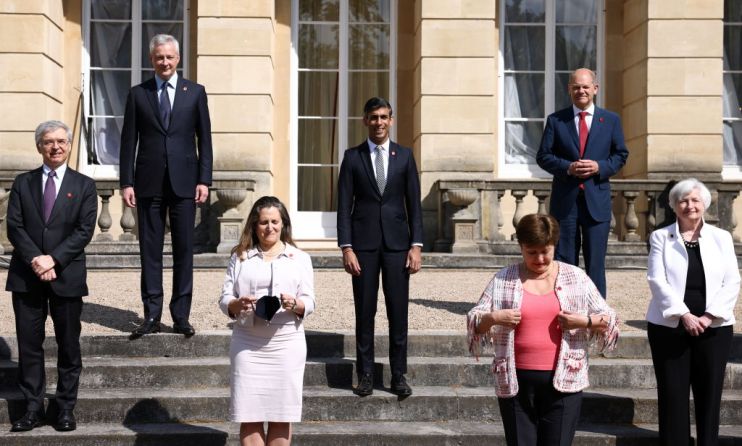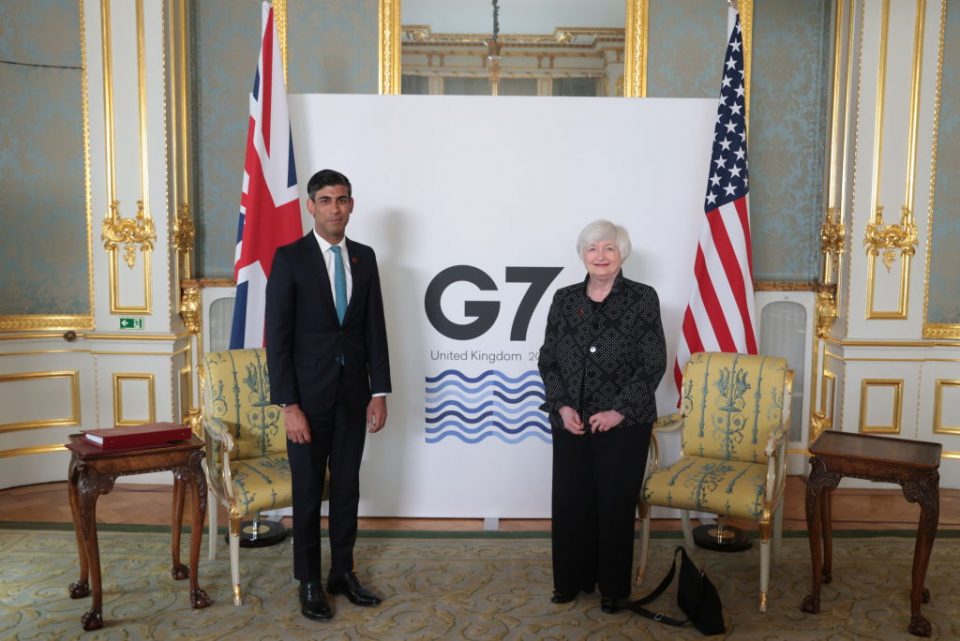DEBATE: Will a global minimum corporate tax lead to real change for multinational giants?

Chancellor Rishi Sunak has agreed to back a deal with G7 nations to create a global minimum corporate tax rate of at least 15 per cent. The agreement has been hailed a world-first to crack down on multinationals shifting profits to low-tax countries in order to skirt tax rules.
The proposal, however, has also been branded inadequate by critics. Many doubt whether it will create real change in how multinationals and tech giants pay tax across the world. So is the G7 deal worth its while?
Tom Peters, Head of advocacy, Tax Justice UK says YES
The G7 agreement marks the end of a failed consensus.
For three decades governments competed in a “race to the bottom” on corporate taxes, slashing rates to coax big businesses and promised investment.
Extreme global tax competition handed an advantage to multinationals, who exploited the rules to pay as little as possible, at the expense of domestic businesses. As the Treasury itself admitted, investment increases haven’t materialised.
The G7 deal on tax is a welcome step towards ending profit shifting and a victory for the tax justice movement’s long campaign for a fairer settlement. But it doesn’t go far enough.
The 15 per cent rate needs to go higher, beyond the 21 per cent the United States originally proposed. This would mean higher revenues, and stronger incentives to pay tax where business is done.
We also have to make sure the deal captures big tech companies, like Amazon.
Finally, a fairer settlement with the Global South is essential, not least in providing funding to finally beat the pandemic.
This deal will start to bring multinationals back under a globally agreed set of tax standards, but there is more work to do.

Tom Spencer, a Young Voices UK contributor, argues NO
The G7 agreement for a new global minimum corporate tax rate was celebrated by Amazon, Facebook and Google. Why would they celebrate a deal which is going to land them with a higher tax bill?
The reality is this won’t have a dramatic effect on big tech. Corporation tax works by taxing a firm’s profits and since most tech companies invest heavily, their profit margins are small and they don’t pay much tax. This deal doesn’t change that.
Moreover, a huge area of tax competition that has gone unnoticed is expensing. This determines how a company gets to deduct the cost of their investments from their tax bill. Large innovative companies will still move their profits to countries with favourable regimes like Estonia and “fair tax” campaigners will still complain about perfectly lawful tax avoidance.
While many will inevitably overstate the economic consequences of this deal, those celebrating the long overdue beginning of tax equality and an end to tax competition will also be disappointed. Higher rates may reduce growth, but the more likely takeaway is this move won’t change much at all.